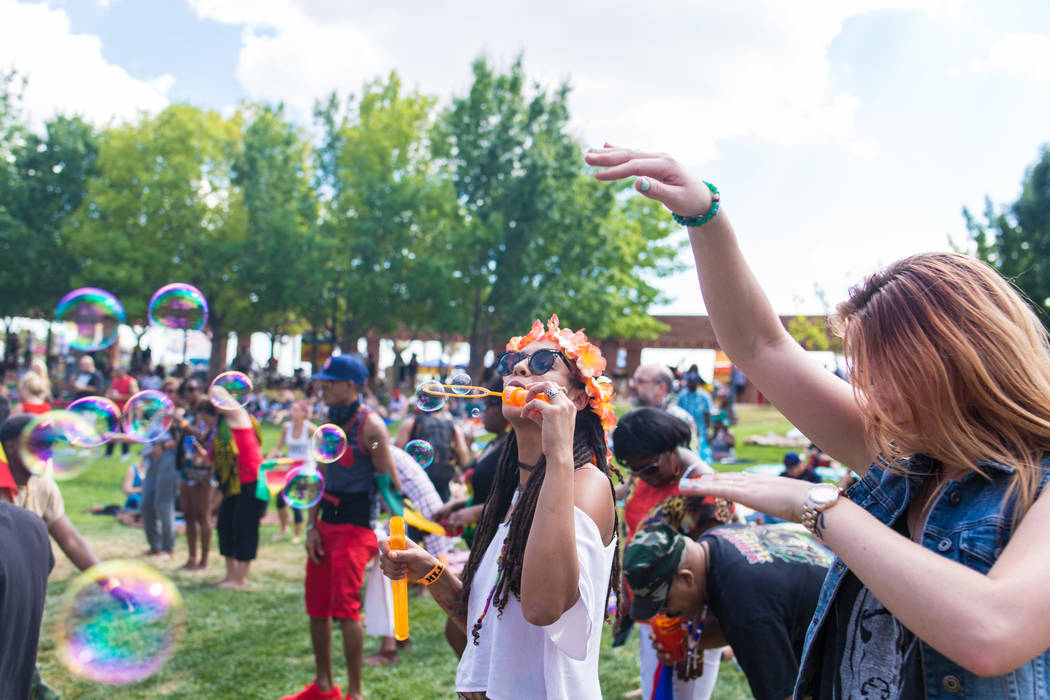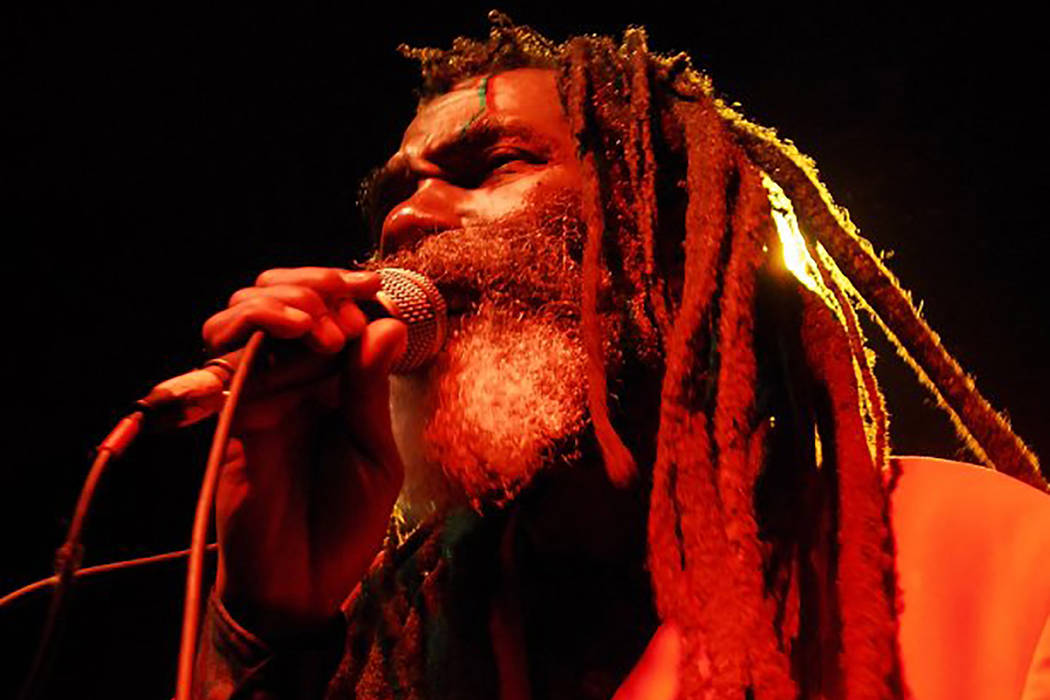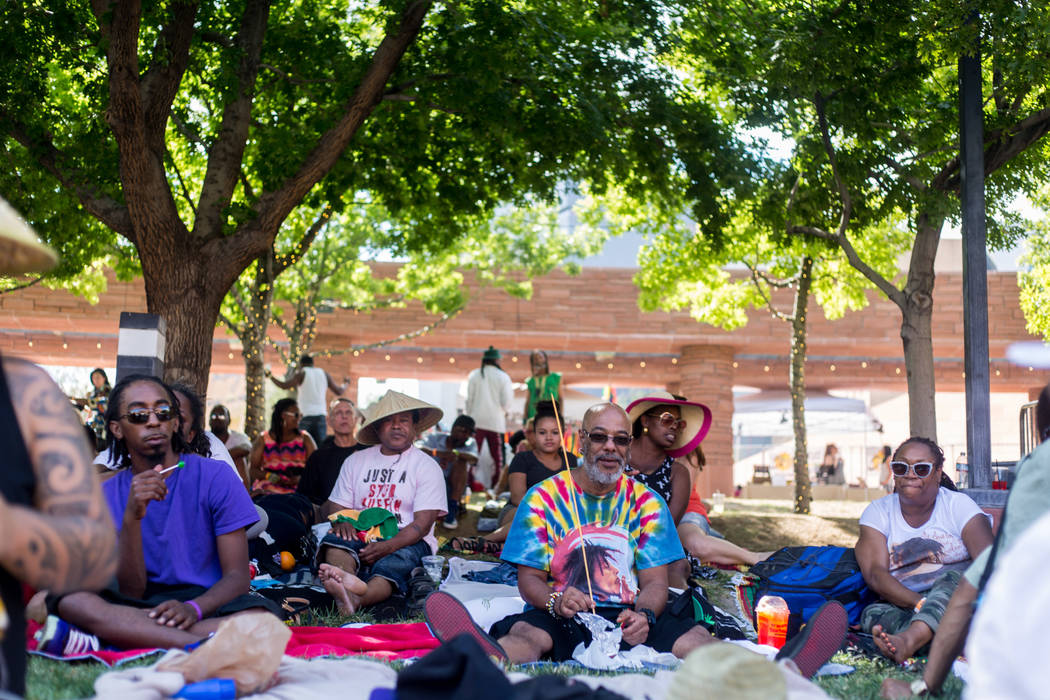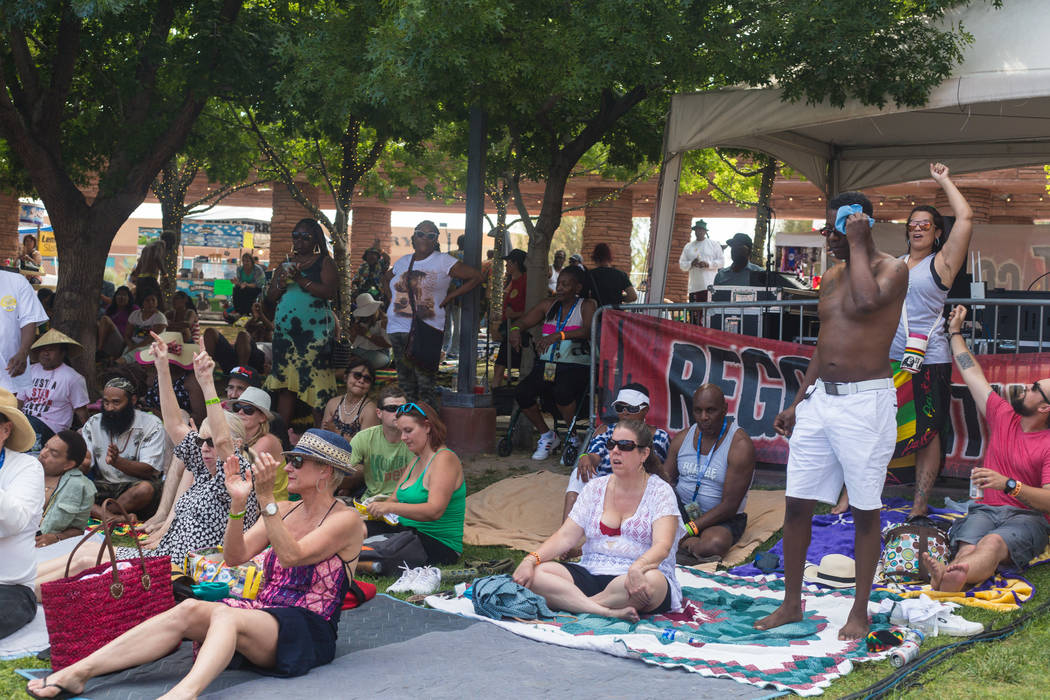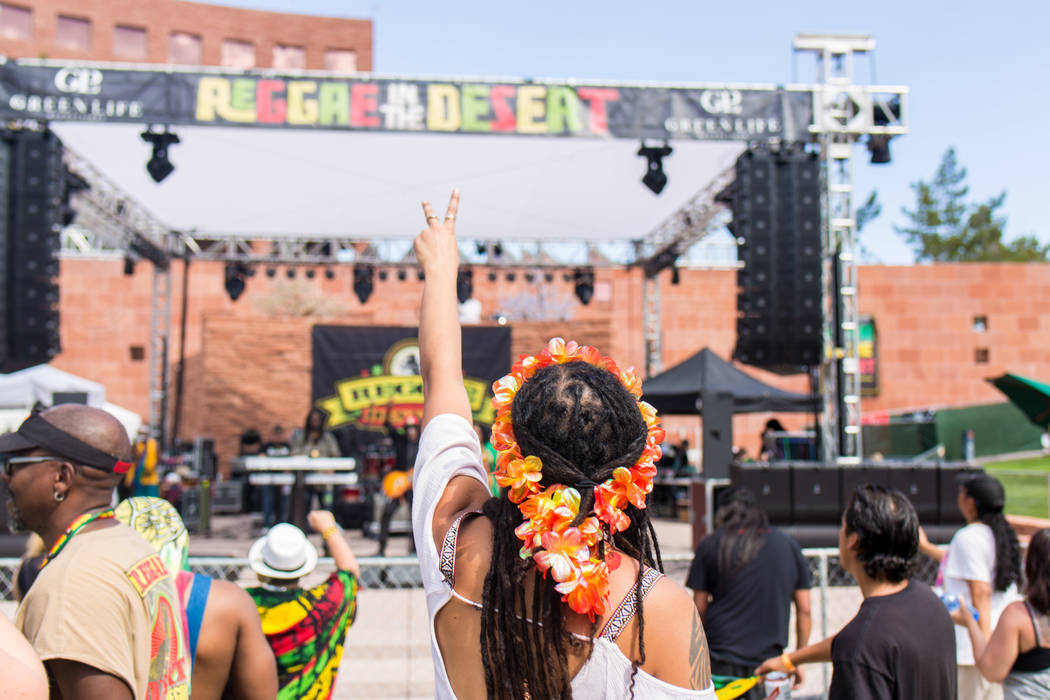Singer Don Carlos heads Las Vegas’ Reggae in the Desert
When others slept, he sang, finding his voice in those early morning hours when most voices have fallen silent.
As a little boy, Don Carlos used to sing for his father.
He still remembers those late nights, recalls them with a warmth evocative of summertime in his native Jamaica, even though 60 years have passed.
“From the time I was like 3, my dad used to tell me, I used to go sing,” the 66-year-old Carlos says. “I remember when I was like 5, 7, I used to get up in the night and sing for my dad. My dad was a tailor. He used to make pants. He used to sew right through the night. I used to see him working and sing to him.
“When I started to sing, people would tell me, ‘Yeah, you’ve got a good voice,’ ” he continues. “They used to tell my mom, ‘That boy’s going to be a singer.’ The music was just given to me. I don’t know how I do it.”
Easy listening from hard streets
Carlos is an easygoing man from a decidedly non-easygoing background.
He was born and raised in the Waterhouse district of Kingston, Jamaica, one of the city’s most impoverished, hard-knock neighborhoods.
“Growing up in Waterhouse, it teach me to be stronger, it certify me to be who I am today, because it was really a rough place to grow up,” Carlos says. “There’s so much corruption out there. You’d have to be focusin’ to really survive.”
There’s something else that Waterhouse is known for, other than being a tough place to live: reggae music.
King Tubby, The Jays, Junior Reid and King Jammy all hail from the neighborhood.
And then there’s Black Uhuru, one of the most successful bands of reggae’s second wave.
The group that would win the first Grammy for best reggae album in 1985 was founded by Carlos, Garth Dennis and Derrick Simpson in 1972 as Black Sounds Uhuru.
Carlos would leave Uhuru for a solo career after recording the group’s seminal 1977 debut, “Love Crisis,” hitting his commercial peak in the early ’80s with a slew of top 10 entries on the reggae charts — “Night Blues,” “Nice Time Tonight,” “Dice Cup,” “Hog & Goat,” “I’m Not Getting Crazy,” “Spread Out” — his voice wizened yet smooth and preternaturally relaxing, as if merely hearing the man sing were enough to lower one’s blood pressure.
Return to the Desert
Carlos will dig deep into that songbook of hits at the 18th edition of Reggae in the Desert, Vegas’ biggest annual celebration of Caribbean music, culture, art and food.
He’ll be joined on the bill by familiar faces in headliners Sly and Robbie, the well-traveled Jamaican rhythm section and production duo who worked with Black Uhuru on many albums. They’ll perform with Carlos’ fellow Black Uhuru veteran Mykal Rose.
The lineup also features roots reggae favorites Alborosie & The Shengen Clan, Yellowman, Jesse Royal and others.
Carlos has played the fest numerous times.
“It’s always a joyful event,” he says. “We have people get together and sharin’ the vibes of the music.”
Speaking of good vibes, engaging in conversation with Carlos for a few minutes is akin to absorbing a kind of natural mood enhancer.
He’s a welcoming presence, someone who makes you feel at ease — with ease.
“My intention every time is to make people happy, make people feel good about themselves, good about other people,” Carlos says. “Reggae’s the main part of my life. Reggae helps to keep me calm, to express myself in a way that I would not be privileged to do otherwise. It helps me to unify people, get people together knowing that peace and love is the most important thing, to respect each other.
“It’s an intricate part of my life,” he adds. “It’s become a part of me.”
Contact Jason Bracelin at jbracelin@reviewjournal.com or 702-383-0476. Follow @JasonBracelin on Twitter.
Preview
What: Reggae in the Desert
When: Noon Saturday
Where: Clark County Government Center Amphitheater, 500 S. Grand Central Parkway
Tickets: $29.99 (reggaeinthedesert.com)



